(For doctoral students)
Updated: 16 September, 2022
Location: Rinktinės g. 3, Vilnius
SEMINAR 1: 9.00 -10.30. Prof. Dr. Roma Kriaučiūnienė (Vilnius University)
TOPIC 1. INTRODUCTION. RESEARCH ARTICLE ANALYSIS
Before writing a research paper it is necessary to familiarise oneself with the concept of scientific discourse. To be able to produce effective research papers it is important to understand the logic and structure of a research paper and know what to write in every part of every section. We will analyze different types of articles, and work out a useful template to follow and apply to your own research paper. We will look into the English expressions that experienced writers use to write clearly and concisely
SEMINAR 2: 11.00-12.30. Prof. Dr. Roma Kriaučiūnienė (Vilnius University)
TOPIC 2. DRAFTING AN INTRODUCTORY PART OF THE PAPER
The introduction is an important part of a research paper as it should answer the questions: what, why, and how. It is meant to set the context for your research work and highlight how it contributes to the knowledge in your field and builds on previous similar studies. We will analyse and discuss a four-step model of how to write an introduction and perform a practical task by applying the model to your planned research paper.
SEMINAR 3: 13.30 -15.00. Prof. Dr. Nijolė Burkšaitienė (Vilnius University)
TOPIC 3. SUMMARISING
In academic writing, summarising is a crucial skill which enables the writer to condense long literature sources into a concise form. In this seminar, the most commonly used stages to write a concise review of theoretical literature will be discussed and writing a summary of a short article will be practiced.
SEMINAR 4: 15.30-17.00. Prof. Dr. Nijolė Burkšaitienė (Vilnius University)
TOPIC 4. AVOIDING PLAGIARISM IN ACADEMIC WRITING
The concept of plagiarism, the degrees of plagiarism and the necessary techniques to avoid it will be discussed followed by practical tasks of using acceptable ways of acknowledging sources, making references, and using quotations.
Location: Rinktinės g. 3, Vilnius
SEMINAR 5: 9.00 -10.30. Prof. Dr. Roma Kriaučiūnienė (Vilnius University)
TOPIC 5: ABSTRACT WRITING AND DRAWING CONCLUSIONS
We will overview tense tendencies in writing academic texts. We will focus on writing the abstract, conclusions, limitations, recommendations, and implications for further research. We will analyse examples and practice writing these parts as well.
SEMINAR 6: 11.00-12.30. Prof. dr. Nijolė Burkšaitienė (Vilnius University)
TOPIC 6: DESCRIBING AND PRESENTING ONE’S EMPIRICAL FINDINGS
Different types of visuals used for describing empirical findings will be analysed. The language of describing facts and figures in different types of visuals while reporting on empirical findings will be practiced. Individual cases prepared by seminar participants will be presented and discussed.
SEMINAR 7: 13.30-15.00 Prof. dr. Nijolė Burkšaitienė (Vilnius University)
TOPIC 7. ACADEMIC WRITING STYLE
There is no one correct style of academic writing as every researcher should find their own voice. In the seminar, guidelines for an appropriate style of writing will be provided and tasks aimed at objective, accurate and impersonal writing to be practiced.
SEMINAR 8: 15.30-17.00 Prof. dr. Nijolė Burkšaitienė (Vilnius University)
TOPIC 8. HOW TO MAKE EFFECTIVE PRESENTATIONS
Requirements for presentation contents, structure, delivery mode and slides will be analysed and discussed in detail. Drafts of individual presentations on one’s research results will be prepared. Peer feedback and teacher feedback will be provided and discussed.
Location: Rinktinės g. 3, Vilnius
Seminar 9: 9.00-10.30 Prof. dr. Roma Kriaučiūnienė (Vilnius University)
TOPIC 9. RESEARCH METHODOLOGY
Research methodology is an important part of a paper. It should explain your methodological approach, include information about the methods you used to do your research. It should also explain what you did and how you did it, by allowing the readers to assess the reliability and the validity of your research. We will overview the main issues that you have to include in this part: the type of research that you did, how you collected and analysed the data, tools and/or materials you used for your research, and describe the rationale for choosing the research methods. We will look into the academic style, grammar, and vocabulary to be used to express your ideas appropriately.
Seminar 10: 11.00-12.30 Prof. dr. Roma Kriaučiūnienė (Vilnius University)
TOPIC 10. DRAFTING THE RESEARCH METHODOLOGY PART OF THE PAPER
We will look into examples of the research methodology part and have practice in describing the genre/design of your research, methods of data collection and analysis, sampling techniques, participants, and setting of the research. We will follow a four-step model of writing a methodology part and familiarise ourselves with the practical tips for writing a good methodology part.
Seminar 11: 13.30-15.00 Prof. dr. Gintaras Valušis (FTMC, Vilnius)
TOPIC 11. PRACTICAL GUIDELINES OF ORAL and WRITTEN PRESENTATIONS
We will discuss principles of informative and attractive oral presentations; relevant examples will be analyzed. Principles on preparing manuscript and cover letters dedicated to journals of American Institute of Physics (Appl. Phys. Lett., J. Appl. Phys., etc) and American Physical Society (Phys. Rev. Lett., Phys. Rev. B, etc) will be considered, relevant examples and their comparison will be examined.
Seminar 12: 15.30-17.00 Prof. dr. Heinz-Wilhelm Hübers (DLR Berlin, Germany)
TOPIC 12. PRACTICAL NOTES OF THE EDITOR
The editorial and peer review process at IEEE journals in particular the IEEE Transactions on THz Science and Technology will be presented. The roles and responsibilities of the editor, reviewers and other involved persons will be described. Best practice examples will be given, including advise on writing manuscript, cover letter and rebuttal letter.
Location: Saulėtekio al. 3 (Room D401), Vilnius
Open Event: 10.30-12.30 Prof. Daniel M. Mittleman (Brown University, USA)
TOPIC 13. INSPIRING RESEARCH
We will discuss the process of creating inspiring research, from the conception of an idea, through the early planning stages up to publication and potential follow ups. Besides assessment of research undertaken in the early beginning, we also look into project planning and structuring to succeed in an increasingly competitive research landscape.
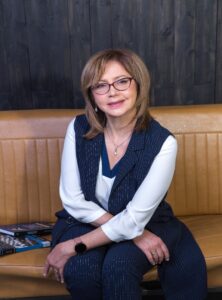
Roma Kriaučiūnienė – Professor, director of the Institute of Foreign Languages of the Faculty of Philology of Vilnius University, holds a Doctoral degree in social sciences (education). The main fields of her research arevalue attitudes and moral competence development in foreign language teaching/learning process at universities; multilingualism and multiculturalism; foreign language didactics, research methodology. She presented her research data at various international conferences in Lithuania and abroad (Latvia, Estonia, Germany, Austria, Turkey, Italy, Spain, Georgia, Russia, Poland, USA) as well as had her research papers published in internationally reviewed scholarly editions in Lithuania, Latvia, Russia, Turkey, Slovenia, Italy, India, Check Republic, Poland, Spain, UK. Academic experience in HEIs for more than 30 years. She has delivered courses to students at Ph.D., Master, and Bachelor levels: English for Academic purposes and Research, Culture and Multilingualism, Text design and Presentation, Research Methodology, English Language Didactics, and others. Executive Board member of the European Language Council CEL/ELC; member of the CEL/ELC Committee of Outstanding Doctorate Award 2021; reviewer of research papers for the scientific journals: Sustainable Multilingualism, Journal of Education, Culture, and Society, and others; editorial board member of the research journals Verbum, Studies About Languages, Ethics in Progress Quarterly, advisory Board member of Cambridge Scholars Publishing.
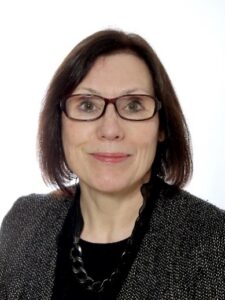
Nijolė Burkšaitienė, Ph.D., is a professor, researcher and translator, expert of the European Commission on Quality Teaching in Higher Education and on Validation of Adults’ Non-formal and Informal Learning in Higher Education, expert of the Research Council of Lithuania.
She conducts interdisciplinary research into competence development in higher education, technology-enhanced teaching and learning in higher education, teaching and learning English for Specific Purposes (ESP), creativity and translation studies, discourse analysis, and assessment and evaluation in higher education.
She is author and co-author of about 50 research articles and seven international and national books and book chapters, and co-translator of four monographs. She is also a member of editorial boards of five international and national research journals and has prepared and participated in 10 international and national projects.
Commendation: Erasmus National Agency Commendation for Strengthening the International Dimension in Higher Education in Lithuania (2012). Her biography is included in the Universal Lithuanian encyclopedia.
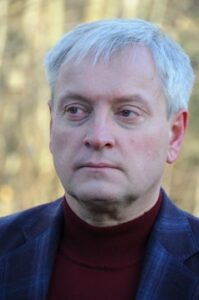
Gintaras Valušis graduated from the Vilnius University, Physics Faculty, in 1985. He acquired his PhD and habilitation at the Vilnius University in 1992 and 2007, respectively. 1995 – 1996 he obtained post-doc in ultrafast spectroscopy of semiconductor nanostructures at Institute of Applied Photo Physics, Dresden University of Technology, Germany. In 2000 and 2003 he was Alexander von Humboldt fellow in topic of terahertz physics at Physics Institute, J. W. Goethe University, (Frankfurt/M, Germany).
Currently, Gintaras withholds positions of director at the Center for Physical Science and Technology (FTMC), Vilnius, Lithuania, head of the Optoelectronics Department at FTMC, and professor in Institute of Photonics and Nanotechnology of Physics Faculty at the Vilnius University. His scientific interests include terahertz physics and spectroscopy, optoelectronics and physics of semiconductor devices.
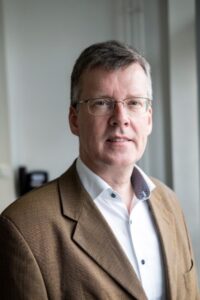
Heinz-Wilhelm Hübers received the Diploma and Doctoral degree in physics from the University of Bonn, Germany, in 1991 and 1994, respectively. From 1991 to 1994, he was with the Max-Planck Institute for Radioastronomy, Bonn, Germany. In1994, he joined the Deutsches Zentrum für Luft- und Raumfahrt (German Aerospace Center, DLR), Berlin, Germany, becoming the Head of Department in 2001. From 2009 to 2014, he has been a Professor of Experimental Physics with the Technical University Berlin, Germany, and the Head of the Department “Experimental Planetary Physics,” at the DLR-Institute of Planetary Research. In 2014, he became the Director of the DLR-Institute of Optical Sensor Systems and Professor in Physics at the Humboldt University Berlin, Germany. His research interests are optical sensors for space applications, in particular THz systems for astronomy, planetary research, and security. Prof. Hübers is Track Editor of the IEEE Transactions on THz Science and Technology. He is principal investigator (PI) and Co-PI of several airborne and spaceborne missions. He was the recipient of the Innovation Award on Synchrotron Radiation in 2003, and the Lilienthal Award in 2007. In 2021, he received an honorary doctorate at Chalmers University of Technology, Gothenburg, Sweden.
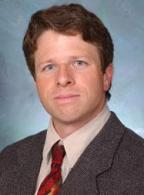
Daniel M. Mittleman is professor of Engineering at Brown University, USA.
Dr. Mittleman received his B.S. in physics from the Massachusetts Institute of Technology in 1988, and his M.S. in 1990 and Ph.D. in 1994, both in physics from the University of California, Berkeley, under the direction of Dr. Charles Shank. He then joined AT&T Bell Laboratories as a post-doctoral member of the technical staff, working first for Dr. Richard Freeman on a terawatt laser system, and then for Dr. Martin Nuss on terahertz spectroscopy and imaging. Dr. Mittleman joined the ECE Department at Rice University in September 1996. In 2015, he moved to the School of Engineering at Brown University. His research interests involve the science and technology of terahertz radiation. He is a Fellow of the OSA, the APS, and the IEEE, and is a 2018 recipient of the Humboldt Research Award. He has just recently completed a three-year term as Chair of the International Society for Infrared Millimeter and Terahertz Waves.